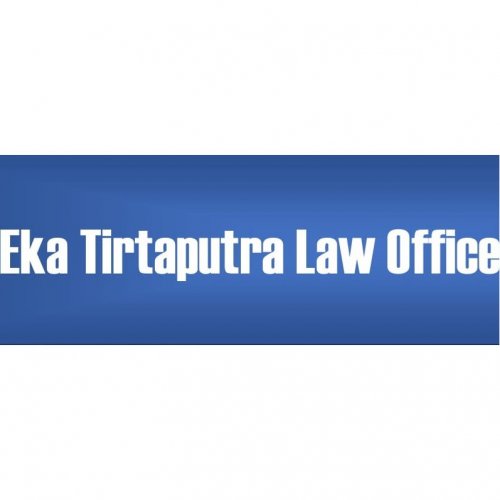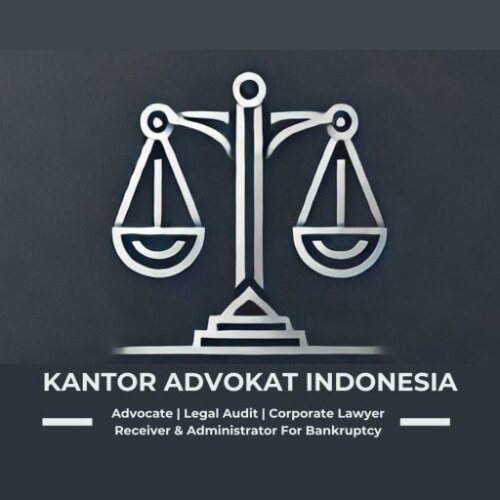Best Water Law Lawyers in Indonesia
Share your needs with us, get contacted by law firms.
Free. Takes 2 min.
Or refine your search by selecting a city:
List of the best lawyers in Indonesia
About Water Law in Indonesia
Water Law in Indonesia governs the management, use, and protection of water resources across the country. The legal framework is centralized in Law No. 17 of 2019 on Water Resources, which replaced the earlier Water Law No. 7 of 2004 after it was declared unconstitutional by the Constitutional Court. The current legal system emphasizes state ownership of water resources, prioritizing public interest and environmental sustainability. It regulates how water can be accessed, distributed, conserved, and consumed, while also detailing the rights and obligations of individuals, businesses, and government entities concerning water use.
Why You May Need a Lawyer
Seeking help from a legal professional specializing in Water Law can be important in several situations. Common scenarios include:
- Applying for licenses or permits to use water for agricultural, industrial, or commercial purposes
- Resolving disputes over water access, allocation, or boundaries involving communities or private entities
- Dealing with government enforcement actions or sanctions related to unauthorized water use or pollution
- Negotiating water rights in cases of land acquisition or infrastructure development
- Understanding rights and obligations regarding customary or traditional water use
- Protecting community access to water sources against private or corporate interests
- Navigating compliance with environmental protection requirements impacting water resources
Because water is a vital and often contested resource in Indonesia, any legal issue concerning water law may involve complex regulations and negotiations with multiple stakeholders, making the assistance of a lawyer invaluable.
Local Laws Overview
The foundation of Indonesia's Water Law is Law No. 17 of 2019 on Water Resources. It states that all water resources belong to the state and must be used for the greatest benefit of the people. Key aspects include:
- Permitting System: Most commercial uses of water require permits issued by government authorities. Permitting ensures sustainable and equitable water allocation.
- Hierarchy of Use: Prioritization is given to basic public needs, such as daily household consumption and irrigation for staple foods, before commercial or industrial uses.
- Environmental Protection: Users are required to prevent water pollution and participate in water conservation efforts. Legal sanctions may apply to polluters or those who waste water resources.
- Customary Rights: Local communities' traditional and customary rights to use water are recognized, provided they do not contradict general regulations and public interest.
- Conflict Resolution: The law establishes frameworks for resolving disputes and managing the complex interaction between regional and central governments concerning water management.
Frequently Asked Questions
What is the main Water Law regulating water in Indonesia?
The primary regulation is Law No. 17 of 2019 on Water Resources, which provides the main legal framework for water management and use.
Do individuals or companies need a license to use water resources for non-household purposes?
Yes, a permit is required for industrial, commercial, or large-scale agricultural use of water. Permits are issued by local or central government institutions.
How are water rights allocated in Indonesia?
Water rights prioritization goes to basic needs, public interests, and irrigation of food crops. Commercial or other large-scale uses are secondary and require compliance with stringent regulations and permits.
Are traditional or customary uses of water protected by law?
Yes, the law acknowledges and protects the customary rights of indigenous and local communities as long as their use aligns with national interests and other applicable regulations.
What should I do if my business is accused of polluting a river?
You should seek legal advice immediately, review the specific allegations, and prepare for compliance checks or legal proceedings. Engaging a lawyer experienced in environmental and water law is recommended.
Can disputes between neighbors over water sources be handled legally?
Yes, disputes over water access or allocation can be brought to mediation or, if necessary, the local courts. Legal representation can help clarify rights and obligations under the law.
How does the government protect community access to clean water?
The government is obligated to ensure sufficient access to safe and clean water for the public, and it prioritizes these needs over commercial interests. Legal remedies exist if this obligation is not met.
Are there penalties for illegal use or pollution of water resources?
Yes, the law includes administrative, civil, and criminal penalties for illegal water use or pollution. Violators may face fines, suspension of permits, or prosecution.
What government agencies manage water resources in Indonesia?
The Ministry of Public Works and Housing, regional water resource agencies, and other relevant bodies oversee water resources and issue permits throughout Indonesia.
How can companies ensure they comply with Indonesian Water Law?
Companies should thoroughly understand all licensing, monitoring, and reporting requirements under the law. Legal consultants can help with permit applications and compliance strategies.
Additional Resources
If you require more information or assistance regarding water law in Indonesia, consider reaching out to the following organizations and resources:
- The Ministry of Public Works and Housing - Directorate General of Water Resources
- Local Regional Water Resource Management Agencies (Badan Pengelola Sumber Daya Air Daerah)
- The Indonesian Environmental Forum (WALHI)
- The Indonesian Water Partnership
- Legal aid organizations experienced in environmental and community rights
- Legal consultants and lawyers specializing in environmental and natural resources law
Next Steps
If you believe you require legal assistance concerning Water Law in Indonesia, it is advised to:
- Gather all relevant documentation related to your water use, including permits, correspondence, and official notices
- Clarify your specific legal question or issue as clearly as possible
- Seek out a qualified lawyer or legal consultant who specializes in water or environmental law
- Consult with regional or national government bodies for advice or to begin the permitting or compliance process
- If your concern involves a community water issue or possible dispute, consider contacting a legal aid organization for support
Understanding Indonesian Water Law can be complex, but with the right guidance and resources you can effectively navigate legal obligations and protect your rights regarding water resources.
Lawzana helps you find the best lawyers and law firms in Indonesia through a curated and pre-screened list of qualified legal professionals. Our platform offers rankings and detailed profiles of attorneys and law firms, allowing you to compare based on practice areas, including Water Law, experience, and client feedback.
Each profile includes a description of the firm's areas of practice, client reviews, team members and partners, year of establishment, spoken languages, office locations, contact information, social media presence, and any published articles or resources. Most firms on our platform speak English and are experienced in both local and international legal matters.
Get a quote from top-rated law firms in Indonesia — quickly, securely, and without unnecessary hassle.
Disclaimer:
The information provided on this page is for general informational purposes only and does not constitute legal advice. While we strive to ensure the accuracy and relevance of the content, legal information may change over time, and interpretations of the law can vary. You should always consult with a qualified legal professional for advice specific to your situation.
We disclaim all liability for actions taken or not taken based on the content of this page. If you believe any information is incorrect or outdated, please contact us, and we will review and update it where appropriate.
Browse water law law firms by city in Indonesia
Refine your search by selecting a city.
















